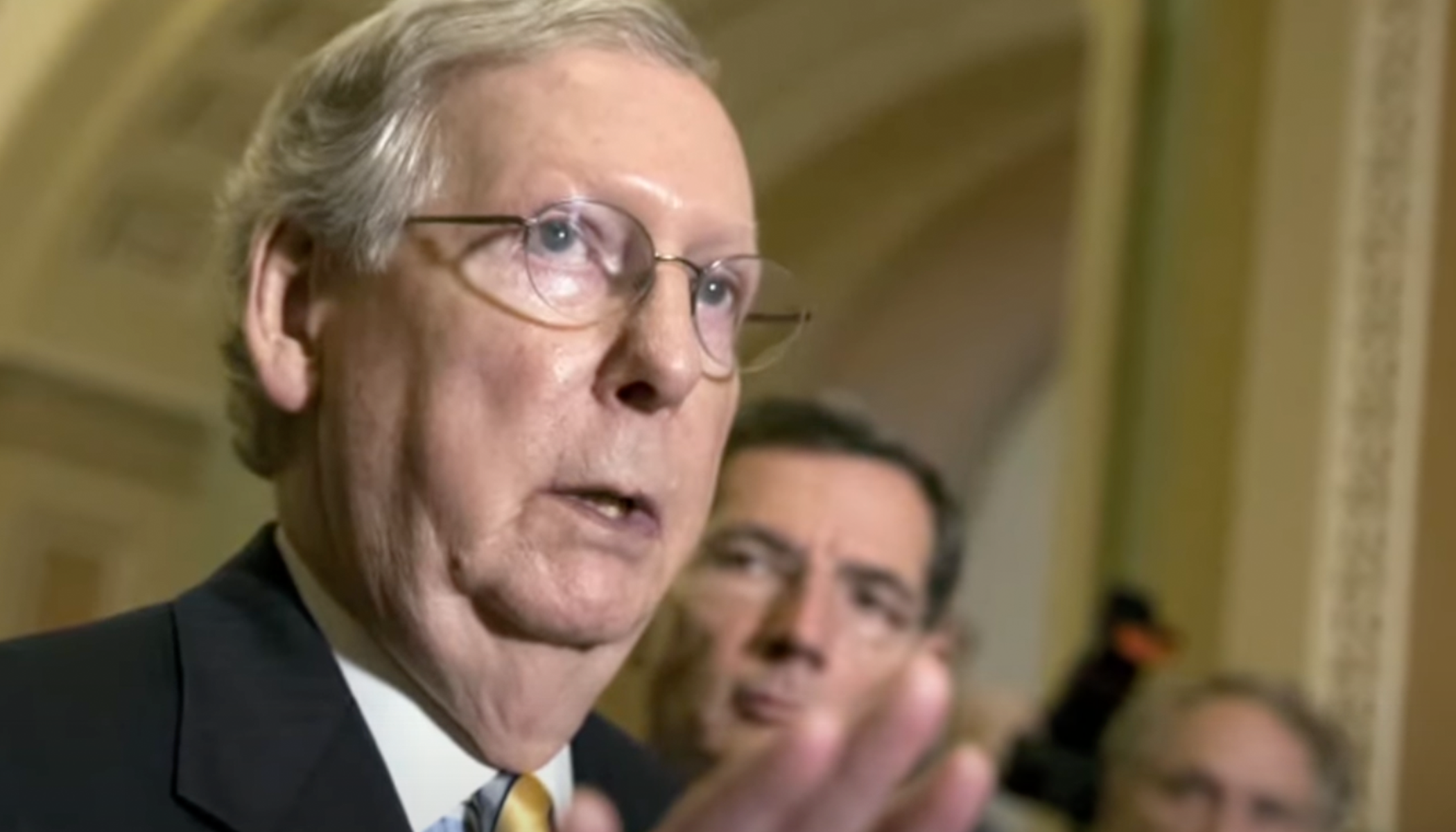Exclusive—Mark Paoletta: Kamala Harris Backs Controversial Bill To Overhaul Supreme Court
Amidst ongoing debates over judicial independence, Vice President Kamala Harris has supported a controversial proposal to transform the structure of the U.S. Supreme Court.
Breitbart reports that the proposed bill could drastically alter the Court’s composition by introducing a mechanism for adding and rotating justices.
Vice President Kamala Harris's endorsement of Senator Sheldon Whitehouse's bill, S. 3096, represents a significant moment in judicial politics. This bill aims to expand the Supreme Court to as many as eighteen Justices, changing the tenure and involvement of its members in pivotal cases.
The bill’s details reveal that the most recent nine appointees would handle 99.9% of cases, effectively sidelining senior justices unless they are among the newest appointments. This unprecedented structure raises questions about its impact on the Court’s longstanding traditions and balance.
The legislation requires that new justices be appointed in the first and third years of a president's term, aligning with President Joe Biden's advocacy for 18-year term limits for Supreme Court justices.
Comparison to Historical Court-Packing Attempts
Senator Whitehouse's approach contrasts sharply with past attempts to modify the court’s structure, notably Franklin D. Roosevelt’s 1930s initiative. FDR proposed adding justices for each current justice over the age of 70, a plan that faced extensive criticism and ultimately failed.
Although FDR also intended to influence the court’s leanings, Whitehouse’s current proposal targets the court’s fundamental operation by changing who decides the majority of cases.
The Democrat-led Senate Judiciary Committee previously criticized such measures, arguing that they could undermine the judiciary's independence, a cornerstone of American democracy.
Specific Targets and Political Implications
Particularly contentious is the provision that would disqualify conservative justices like Clarence Thomas from sitting on nearly every case after the new rules take effect. In response, critics argue that the bill selectively targets justices based on their ideological leanings and past rulings that favor conservative viewpoints.
Additionally, detractors have surfaced accusations of hypocrisy, noting that ethical concerns raised against conservative justices were conspicuously absent during Justice Ginsburg's tenure. Consequently, this has intensified claims that the bill is politically motivated, aiming to reshape the court’s ideological balance under the guise of reform.
Moreover, Mark Paoletta remarked that Vice President Harris’s support for such a radical overhaul represents an unprecedented assault on the Court's independence.
Broader Impact on U.S. Governance
Critics claim that the bill’s implications reach far beyond the judiciary, potentially reshaping U.S. governance. For instance, issues such as speech, religious liberties, gun rights, property rights, government regulation, immigration, and criminal justice could all experience significant impacts from such a judicial shift.
Furthermore, the proposed legislation uses the Constitution's exceptions provision, which critics argue is misapplied here to target Republican-appointed justices. Consequently, this move could trigger significant constitutional challenges and pose a long-term threat to the rule of law and government structure.
In addition, opposing factions in Congress suggest that passing the legislation could spark a cascade of legal battles and prompt a reevaluation of judicial limits and powers.
The Ongoing Debate Over Judicial Reform
As the debate heats up, both sides of the political aisle prepare for a confrontation over the bill’s future. Proponents assert that the reform is necessary to balance the court and adapt it to modern challenges, whereas opponents view it as a direct attack on judicial impartiality.
"Democrats like to say our democracy itself is on the ballot. They might be right. This legislation is a mortal threat to an independent Supreme Court and the rule of law and must be defeated," one critic remarked, encapsulating the fierce opposition the bill faces.
Given that Vice President Harris and Senator Whitehouse are leading this controversial initiative, the coming months will likely see intense political and public scrutiny over the future of the U.S. Supreme Court.






